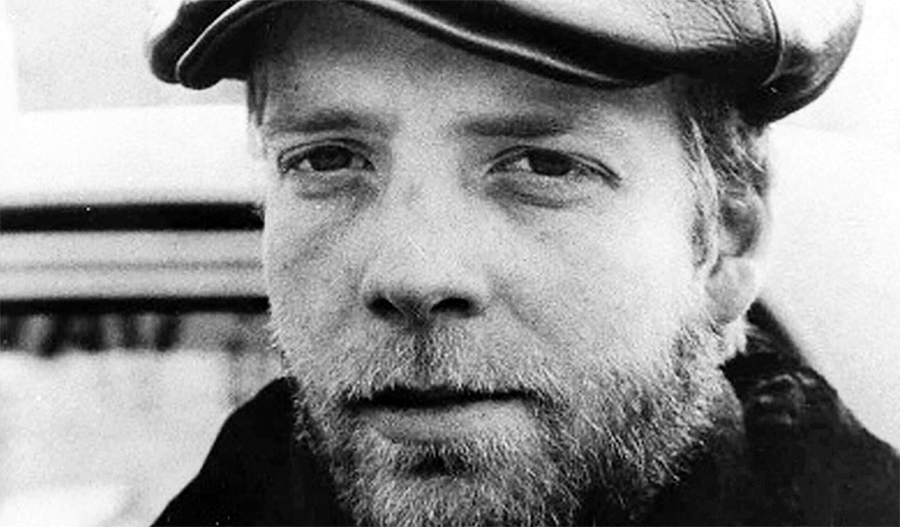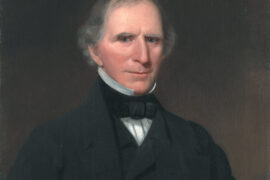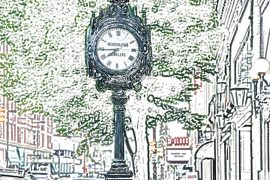By Jack Houvouras
HQ 120 | WINTER 2023
Bringing the story of Breece Pancake to the pages of HQ is one of the primary reasons I decided to start this magazine. There is a certain freedom that comes with owning a business, and it allows you to make calls that others might not agree with. My decision to feature Pancake on the cover wasn’t the smartest business move — it won’t help generate a great deal of advertising revenue or sell many magazines on the newsstand — but it is a compelling story that needed to be told. In fact, it’s one of the best-written and most socially significant pieces we’ve published in the last 33 years.
Pancake was a Milton, West Virginia, native who graduated from Marshall University in 1974 before attending the University of Virginia to study in its renowned creative writing program. Unlike most young writers who toil in obscurity for years, Pancake found success almost immediately when The Atlantic Monthly, one of the most esteemed literary publications in the world, published a short story he submitted. More pieces followed, and the literary world took notice. Luminaries like Kurt Vonnegut, Joyce Carol Oates, Raymond Carver and Sam Shepard proclaimed him to be one of the greatest writers of his generation. But while professional successes came easily for Pancake, he struggled personally at the prestigious university. He confessed to feeling like an outsider, and a hillbilly from the wrong side of the state line, under the school’s hierarchy. Then, just three years after arriving in Charlottesville, for reasons not completely understood, he killed himself. He was just 26 years old.
Even today, some 43 years after Pancake took his own life, suicide remains a mysterious, perilous and taboo subject. For most, it is something beyond comprehension, a topic too distressing to confront. But that needs to change, because the crisis is only getting worse. From 2000-2018, the suicide rate in the United States increased 30%. In 2020, there were nearly two times as many suicides (45,979) as there were homicides (24,576). And most disturbing of all, suicide is the second-leading cause of death among individuals between the ages of 10-14 and 25-34.
It seems suicide is particularly prevalent in the arts community. It has claimed the lives of Vincent Van Gogh, Mark Rothko, Virginia Woolf, Hunter S. Thompson, Sylvia Plath and the man Pancake was favorably compared to, Ernest Hemingway. More recently we have seen the passing of Kurt Cobain, Chester Bennington, Chris Cornell, Anthony Bourdain and Robin Williams.
But there is hope on the horizon as more people —from medical professionals to celebrities — are speaking out about the importance of suicide prevention and mental health. Those who have discussed their struggles with anxiety, depression and other mental illnesses include Leonardo DiCaprio, Lady Gaga, Selena Gomez, Jon Hamm, Kristen Bell, Billie Eilish, Ariana Grande, Ryan Reynolds, Carson Daly, Michael Phelps, Kevin Love, Kendrick Lamar and both Prince William and Prince Harry. Well-known figures who say they have contemplated suicide include Johnny Cash, Elton John, Demi Lovato, Drew Barrymore, Owen Wilson, Halle Berry and J.K. Rowling.
Much can be gleaned from the brilliant and tragic life of Breece Pancake. In addition to his undeniable talent as an author, he was fiercely proud of his roots in West Virginia and hoped to change the way the world perceived his home state. His time in Virginia was yet another example of how the class system in America is still alive and well. But perhaps most important of all was the light he shed on the struggles we all face — whether we are rich or poor, famous or obscure — and how we confront the moments of darkness in our lives.
If you or someone you know is struggling with thoughts of suicide or depression, please call or text 998.





